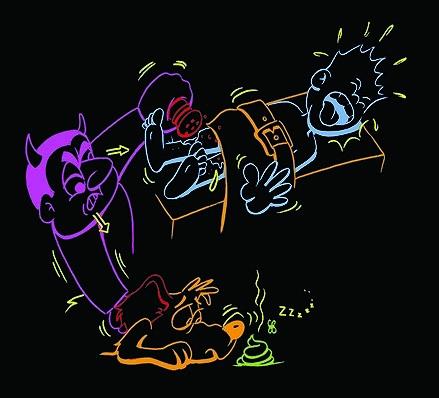Rub It In——挖人瘡疤
** to increase the pain or embarrassment of something(增加某些事情的痛苦或尷尬)// exacerbate an affront or a defeat(加劇侮辱或失敗)// to keep reminding someone of something annoying or unpleasant(不斷提醒某人的煩惱或不愉快)
~~挖人瘡疤;揭人的底;觸人痛處;強想錯事;火上加油;提人過失;強人想起;講個沒完
~~ rub salt into the wound; rub someone's nose in it; add insult to injury; add fuel to the fire; throw/pour gasoline on the fire; keep going on about
!! The “it” in this expression might have come from:
1.Rub salt in it (a wound). Rubbing salt in a wound is painful physically, or painful mentally, or both.
2. Rub someone's nose in it. The term came from the unkind practice of house-training a pet by rubbing its nose in its excrement.
此句表達中的“它”可能來自:
1.在裡面撒鹽(傷口)。在傷口上撒鹽使人身體疼痛,或精神上疼痛,或兩者兼而有之。
2.在裡面擦着某人的鼻子。這個術語來自於對寵物進行家訓的不友好做法,即搓寵物的鼻子在其排泄物上。
>> On the false advertisement, our competitor acknowledged it and has apologized for it. Let’s forgive and forget, and not to rub it in anymore.
關於虛假廣告一事上,我們的競爭對手已承認了它,並為此道歉。讓我們原諒並忘記,不再挖人瘡疤。
>> You’ve been telling your daughter to work harder, without encouragements nor incentives; it’s not going to work. Stop rubbing it in and focus on what she wants.
你一直告訴你的女兒要更加努力卻沒有給她鼓勵或獎勵,這不會起作用。不要講個沒完没了,讓她專注於想要的東西。
學勤進修教育中心
英語專科導師
李啟文教授





